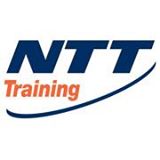|
||||||||||||||||||
Bring this seminar on-site to your facility for groups of 10 or more. |
Learn NFPA 70E to meet OSHA Electrical Safety Requirements!
Course Description
3 day Lecture
2.4 Continuing Education Credits
The following sub-components are available:
2012 NFPA 70E/ Arc Flash Electrical Safety
A good option to add to our essential two-day NFPA 70E/Arc Flash Electrical Safety course is this additional third-day course: Introduction to Arc Flash Analysis. An arc flash is a pressure wave caused by the rapid expansion of gases and conducting material with high flying molten materials and shrapnel. Due to the extreme hazards of arc flashes while working near energized equipment, electrical safety is critical. This third day teaches the fundamentals of electrical safety as it pertains to NFPA 70E standards, including the 2012 updates. OSHA’s mandated training requirements apply to employees who face a risk of electric shock that is not reduced to a safe level by the electrical installation requirements of OSHA 29 CFR 1910.303 through 1910.308. Electrical safety training empowers workers to perform their jobs safely.
If you’re looking for a shorter review of NFPA 70E, you might be interested in this 2-Day Lecture with covers the fundamentals: NFPA 70E / Arc Flash Electrical Safety
Agenda
This course also includes the agenda for initial two-day NFPA 70E / Arc Flash Electrical Safety course.
NTT recommends bringing your laptop for the third day, this would be helpful, but not a requirement.
NFPA 70E 2012 Updates
- Review of important revisions
Important Standards
- Approach boundaries
- Flash boundaries
- Selection of PPE
- Voltage rated regular gloves
- Simplified two-category, (FR) clothing system
- Clearing time for fuses and breakers
OSHA 29 CFR 1910.331.335: Electrical Safe Work Practices
- Qualified person requirements
- Training requirements
- Selection and use of work practices
- Work on de-energized parts
- Lockout/Tag out
- Working on or near exposed energized parts
- Test instruments and equipment
- Safeguards for personal protection
- Proper use of rubber goods
- Insulated tools
- Flame resistant (ATPV) clothing
Standards Referenced and Organizations Used
- American National Standards Institute (ANSI)
- American Society of Testing and Materials (ASTM)
- Institute of Electrical and Electronic Engineers (IEEE)
- National Fire Protection Association (NFPA)
Electrical Hazards
- Electrical shocks, arcs and blasts
- Fault current and potential difference
- Electrical safety in industrial plants
Safety Maintenance Practices
- Switchgear
- Fuses and circuit breakers
- Premise wiring controllers
Safe Installation Practices NFPA 70
- Guarding live parts
- Effective grounding
- Working clearances
|
More Seminar Information | ||||||||||
| ||||||||||
 Search similar training
Search similar training Email this page
Email this page Print this document
Print this document
|
Frequently Asked Payment Options Register Availability Other Information |

 NFPA 70E/Arc Flash Electrical Safety w/ Intro to Arc Flash Analysis Seminar
NFPA 70E/Arc Flash Electrical Safety w/ Intro to Arc Flash Analysis Seminar
 On-Site Training
On-Site Training